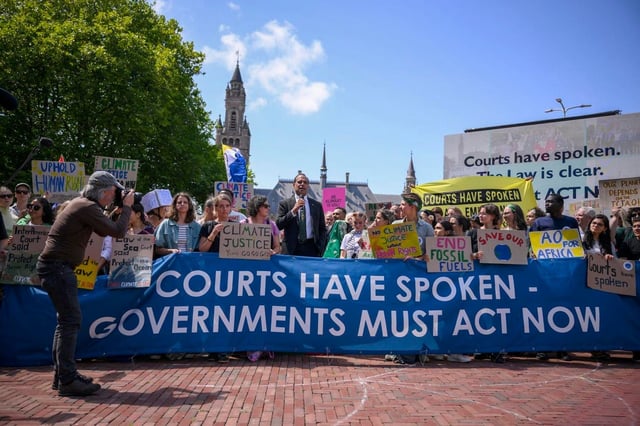Overview
- The July 23 advisory opinion affirms that states have binding duties under international law to cut greenhouse gas emissions, adapt to climate impacts and prevent environmental harm, with failures deemed internationally wrongful acts.
- NGOs, legal experts and climate-vulnerable nations have already filed or prepared cases invoking the ruling to press for stricter fossil fuel regulations and full reparations from high-emitting countries.
- Legal analysts are crafting domestic and transnational strategies based on the opinion’s standards, including non-refoulement obligations for climate-displaced people and safeguards for the statehood of submerged island nations.
- Health and human rights advocates highlight the court’s linkage of a clean, healthy environment to fundamental rights, using the opinion to advance climate-driven public health measures.
- Although non-binding, the ICJ’s authoritative interpretation is reshaping policy debates over fossil fuel subsidies, adaptation funding and the legal thresholds for liability and compensation.



